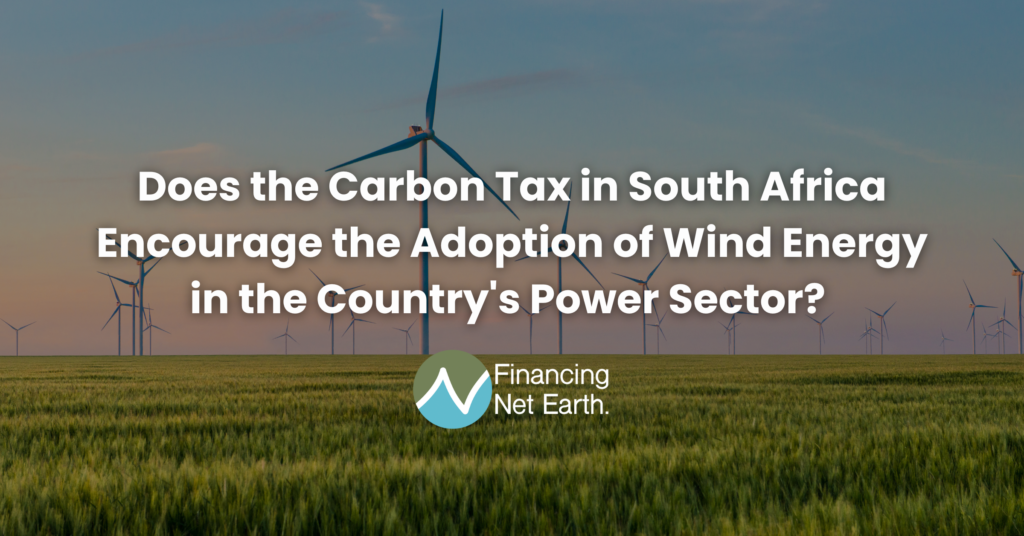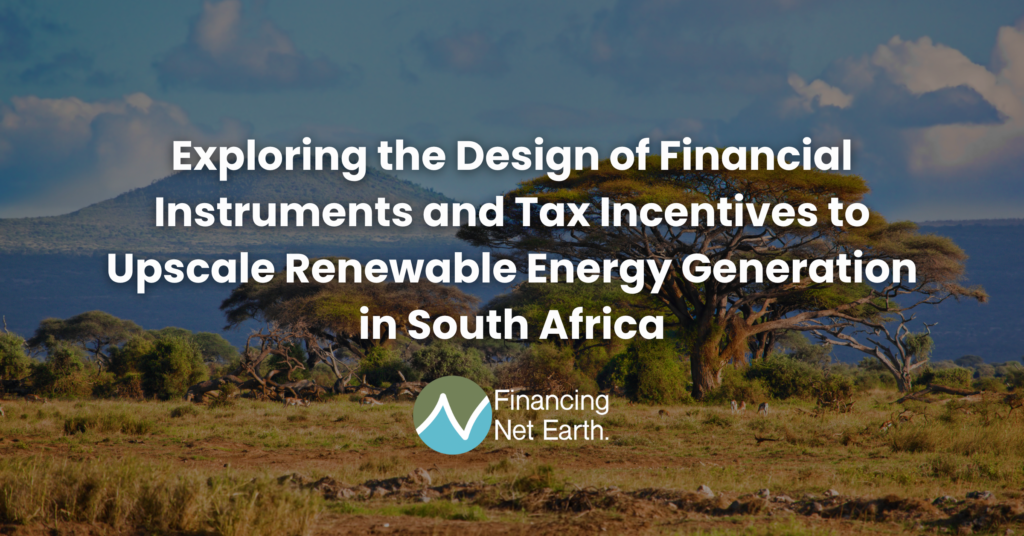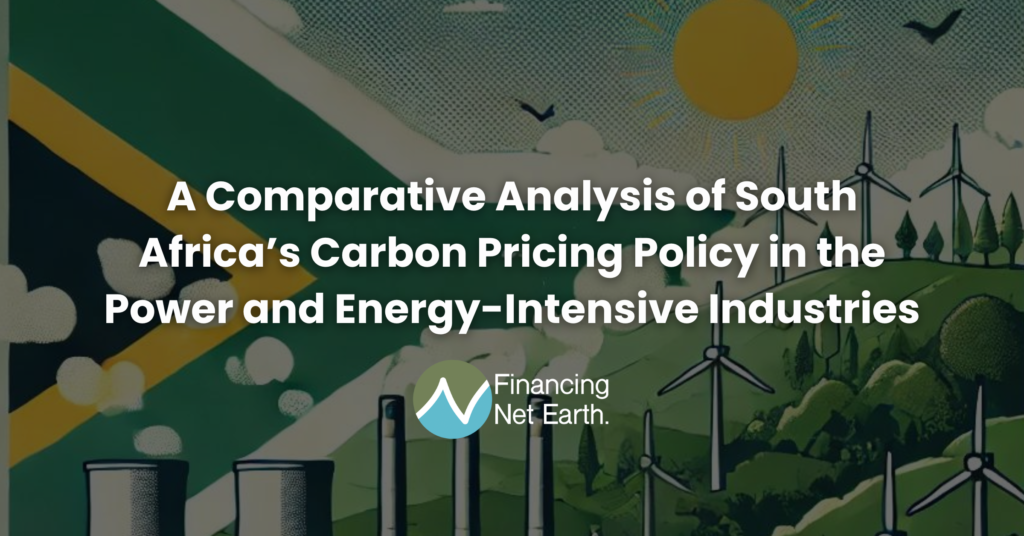Does the Carbon Tax in South Africa Encourage the Adoption of Wind Energy in the Country’s Power Sector?

Does the Carbon Tax in South Africa Encourage the Adoption of Wind Energy in the Country’s Power Sector? By Kgalalelo Makamela and Roshelle Ramfol This research aims to evaluate whether South Africa’s carbon tax rate incentivises the adoption of wind energy within the nation’s power sector. By employing qualitative analysis, the study examines whether South […]
Exploring the Design of Financial Instruments and Tax Incentives to Upscale Renewable Energy Generation in South Africa

Exploring the Design of Financial Instruments and Tax Incentives to Upscale Renewable Energy Generation in South Africa By Kebaabetswe Veronica Ramushwana and Roshelle Ramfol South Africa is at the precipice of an existential energy crisis. Notably, the country’s endowment comprises vast stores of biomass, wind and solar energy potential that provide the country with a comparative […]
Does the South African Carbon Tax Incentivise Mines to Invest in Solar Photovoltaic?

The aim of this study was to evaluate the adequacy of South Africa’s carbon pricing policy in incentivising adoption of Solar photovoltaic in South African mines. A qualitative study was conducted to evaluate the adequacy of South Africa’s carbon tax policy design to encourage adoption of solar photovoltaic in mines. The study further establishes the carbon pricing level that will induce South African miners to invest in Solar photovoltaic through a net present value simulation. A review of South Africa’s Carbon Tax regime highlights that the policy shortcomings can be attributable to low carbon prices, excessive free emission allowances, and continued subsidy support of fossil fuels. Furthermore, the carbon price needs to exceed cost of abatement to encourage investment in decarbonisation measures. A net present value simulation finds that a carbon price of ZAR 668.62 per tonne of CO2 would need to be levied to incentivise mining entities to invest in solar photovoltaic. The study recommends higher carbon prices be levied for carbon for emissions to encourage mining entities to adopt solar photovoltaic renewable energy. The paper contributes to tax policy scholarship on designing a carbon pricing model for South Africa’s mining sector. Decarbonising the mining industry, a significant contributor of GHG emissions, will advance the decarbonisation efforts of South Africa.
A Comparative Analysis of South Africa’s Carbon Pricing Policy in the Power and Energy-Intensive Industries

Carbon pricing strategies are an integral policy instrument for achieving a decarbonised economy. By increasing the price of carbon emissions to reflect the social cost and harmful effects of climate change, users are prompted to adopt sustainable energy options. This study evaluates South Africa’s carbon tax regime design as an accelerant towards the decarbonisation of the energy-intensive sector. The analysis reveals that South Africa’s carbon tax is ineffective in decarbonising the energy-intensive sector. Low carbon prices, excessive free emission allowances, and continued subsidy support of fossil fuels have limited the potential of South Africa’s carbon tax towards shifting consumption and production away from greenhouse gas-intensive activities. A comparative tax analysis of Canada, Switzerland, and the United Kingdom’s carbon pricing policies is conducted to benchmark policy lessons for South Africa. First, a review is performed of South Africa’s proposed carbon pricing policy. Second, a comparative analysis is conducted on the current practice in the comparative countries. Third, policy lessons are drawn from the comparative countries to accelerate decarbonisation in South Africa’s energy-intensive industries. The paper contributes to tax policy scholarship on designing a carbon pricing model for South Africa’s energy-intensive sector.
Financing Net Earth Announced as Conference Partner for ICBMGE-2023

Financing Net Earth Announced as Conference Partner for ICBMGE-2023 Financing Net Earth will proudly serve as a conference partner at the highly anticipated BESRA International Conference on Business, Management, and Green Economy (ICBMGE-2023). Taking place in the vibrant city of Berlin, Germany, on 20-21 October 2023, this prestigious event promises to be a dynamic platform […]
